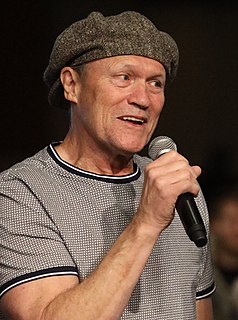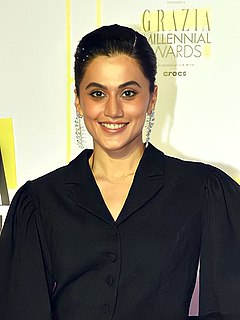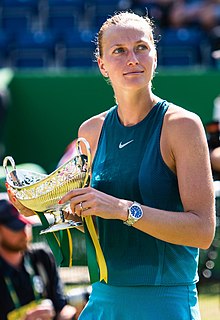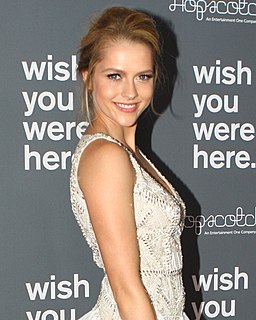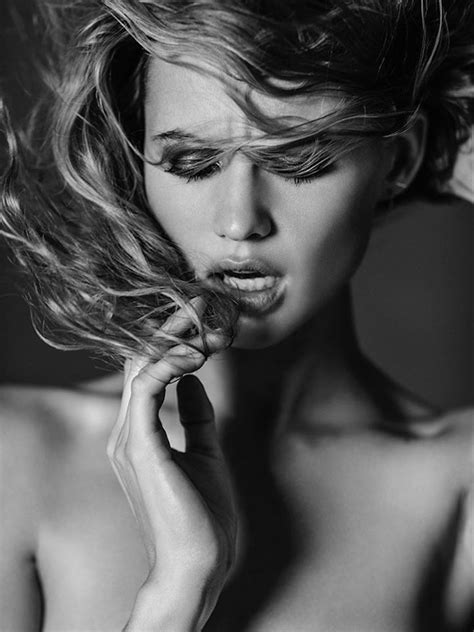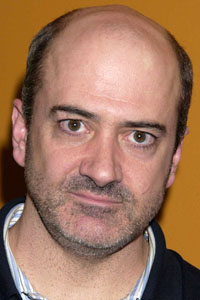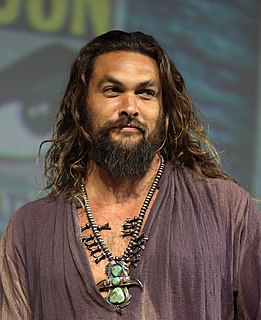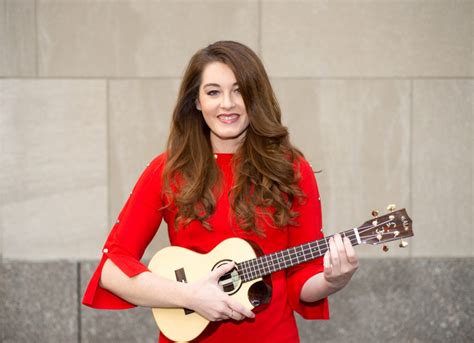A Quote by Michael Rooker
Every time I was cast in a role, the director put a gun in my hand, so I figured I’d better learn how to use one. Then I found out I really liked it.
Related Quotes
Corporations are legal fictions created by the State to shield executives from liability… It’s like if I had a little hand-puppet, and I went to rob a bank, and the hand-puppet held the little gun and told people to hand over all the money, and then the hand-puppet grabbed the money and ran out, and then I got caught and I handed the hand-puppet over the police and then the police tried the hand-puppet, put the hand-puppet in jail, and I get to keep all the money.
I get rewarded virtually every day with something amazing to see - whether it's a new shot, a miniature sweater, someone who's figured out how to make the hair look really great. We found a way to do the rain, finally. And mud. Make the trees. So I get to stay in constant motion as a director, you know, reviewing things. And there's a lot to review.
Every film you work on is different, and that's part of what it's like for anybody who works on a film, is to learn how to work with others. Learn from top to bottom. Actors have to learn how to work with the director and the director has to learn how to work with actors, and that's not just those two departments.
Composition is what's similar between being photographer and director. As a photographer, you're sort of doing everything - you're directing the lights and you're framing and you're moving around. The hardest thing to learn as a director is how cameras have to move. You have to have patience, you have to learn how to look through the lens and then you have to learn to combine all of the compartments into one great image.
I never had any thought the whole week. I figured my caddie [Jerry Beard] knew the course a lot better than me, so I put out my hand and played whatever club he put in it. I'd say, "How hard do I hit it?" He'd tell me and I'd swing. The guys who come down here once a year and try to get smart with Mr. Jones' course are the dumb ones.
It's not that demanding. It's fun. That's one of the great things about being an actor. You get to learn all these things normal people don't get to learn. Going through hallways where it's basically like S.W.A.T. tactical stuff. Around hallways, how to cross, how to signal everyone. Then how to hold a gun, holster the gun - everything.
There's actually a time when I got cast in something and it was announced that someone else was cast. I hadn't been told yet if I had the role and I had a breakdown because I really wanted it and it was announced on this website that this other girl had gotten it. I was so sad and called my agents and said, "You guys didn't tell me this other person got the role!" They were like, "No, they haven't decided yet." Then two hours later I got the call that said I had the role.
